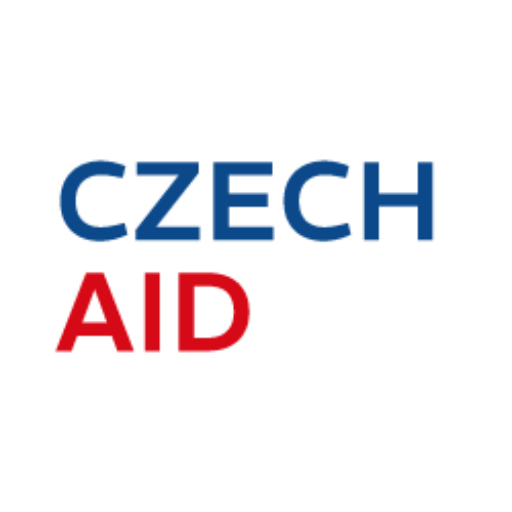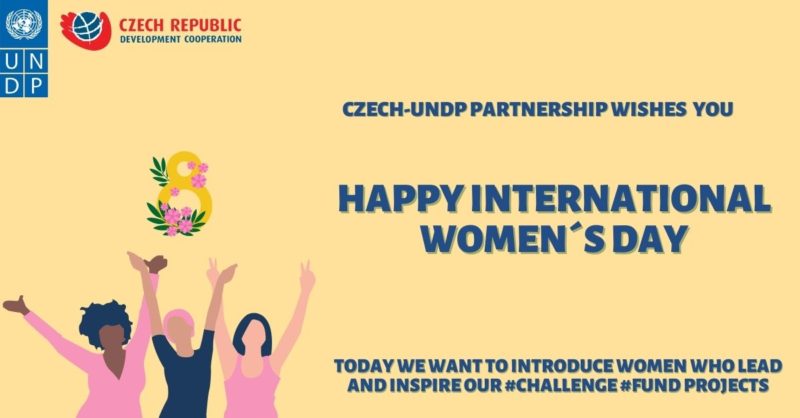International Women´s Day 2023
International Women´s Day was officially recognized by the United Nations in 1977. The purpose of the day is to uphold women’s achievements, recognize challenges, and focus greater attention on women’s rights and gender equality. The theme for this year’s International Women’s Day, 8 March 2023 is, “DigitALL: Innovation and technology for gender equality”
As UN Secretary-General noted: “Today, women make up under a third of the workforce in science, technology, engineering, and maths. When women are under-represented in developing new technologies, discrimination may be baked in from the start“
This important day is also an opportunity to introduce some of the Czech Challenge Fund projects, where women are the driving force behind the innovations of all kind.
First Steps Towards Development of Peer Work in Georgia
There are currently over 80 000 persons registered in State mental health services in Georgia, however it is estimated that the number of people who struggle with mental health problems and do not seek help is much higher. Peer workers are people with lived experience of mental disorder and peer support is an innovative intervention in which peers offer support to others with mental disorder in social services, psychiatric hospitals and other social and health facilities. Czech organization Centre for Mental Health Care Development together with their local partner Union “partnership For Equal Rights” (PER) currently implement a project that will not only train group of peer workers to start working immediately but also develop standards of peer work to frame the functioning of peer workers in the mental health care system in the country. Since women are the leading force behind this project, let´s introduce two of them.
Olga Kalina is a human rights activist in the disability and mental health fields and in the current project she is in charge of coordination of the project activities. After she was diagnosed with paranoid schizophrenia in 2005, she joined the non-governmental organization, Partnership for Equal Rights promoting rights of people with mental health problems. Since then she has been involved in trainings, advocacy activities and projects related to human rights in the mental health sphere. In addition, she has been involved in monitoring of houses for elderly people, prisons and psychiatric institutions. Since 2014, Olga Kalina is Chair of the European Network of (Ex-)Users and Survivors of Psychiatry (ENUSP) and a member of the monitoring team of the National Preventive Mechanism, Georgia.
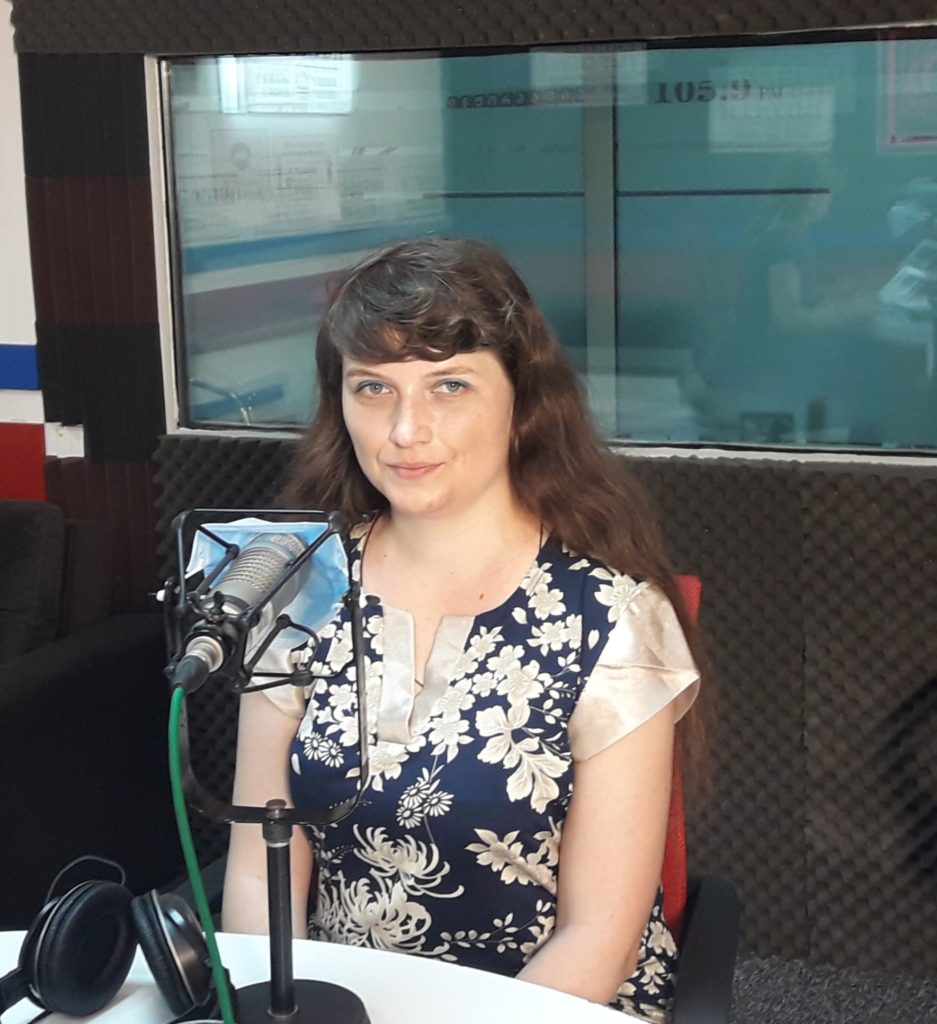
Olga Kalina 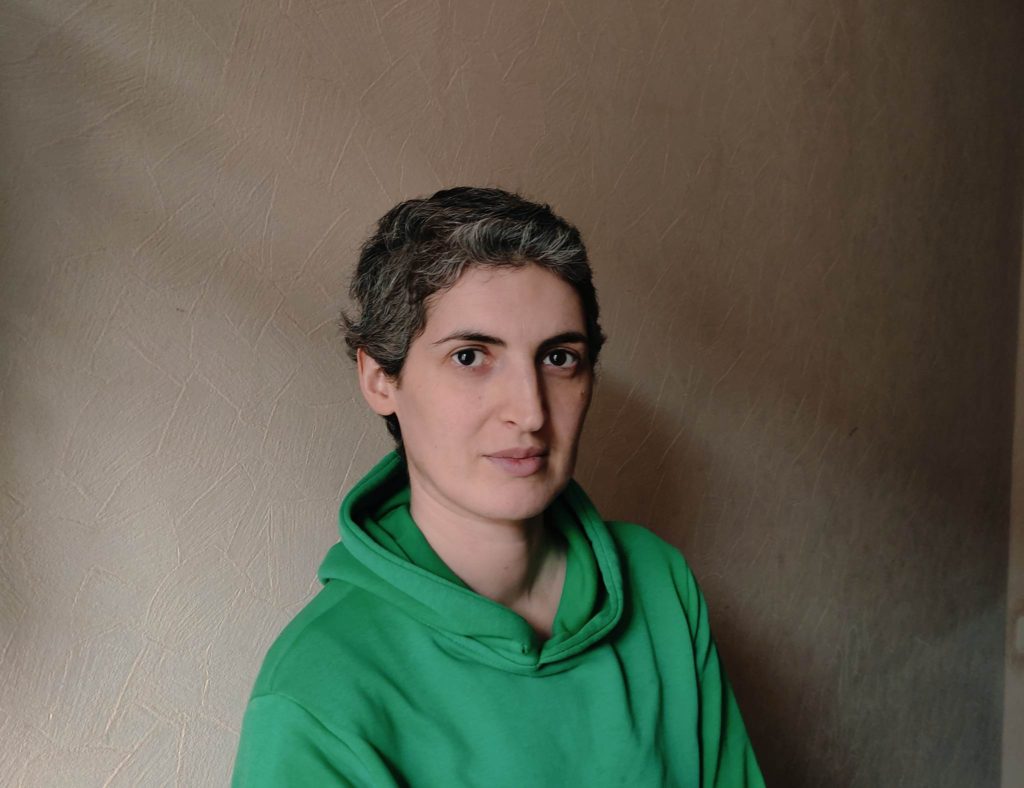
Tinatin Shalamberidze
Tinatin Shalamberidze is a family physician. She has been diagnosed with a mental health condition when she was 18 years old. In 2019 she joined the organization Georgian Network of (Ex-)Users and Survivors of Psychiatry and the Georgian Network of Women with Disabilities and since then she has been active in publicly voicing the issues women with mental health conditions/psychosocial disability face in Georgia. She has also been organizing awareness raising events and exhibitions of artwork made by persons with mental health conditions/psychosocial disability. In the current project of Partnership for Equal Rights, “Support of Peer Work in Georgia-First step” Tinatin is one of the peer support trainees, motivated to help other people with the similar conditions to find hope and regain strength and optimism about the future.
Transfer of the new know-how and modern beekeeping methods for sustainable, ecological and economical beekeeping
The Varroa destructor mite is the main source of bee colony mortality in the world and Moldova is no exception. Apis Innovation provides a solution to that. Together with their local partner The National Association of Beekeepers of the Republic of Moldova, they introduce thermotherapy in Thermosolar Hive to Moldova. Today, we will introduce two female beekeepers who take part in the project and always look for opportunities to improve their beekeeping skills and knowledge.
The entrepreneur Cristina Radu was born into a family of beekeepers and acquired a special love for beekeeping since childhood. Later, together with her husband, they decided to open their own business, inheriting several families of bees from their parents and now working side by side with them. Gradually, the number of bee families tripled and the enterprise produces around 20 tons of honey per year. Nowadays, she and her family take care of 600 bee families. The key to the success of GT “Pleşca Cristina Andrei” is the investments in machinery and equipment, which keep up with the latest trends that Cristina follows and which have substantially helped her to increase their family business income.
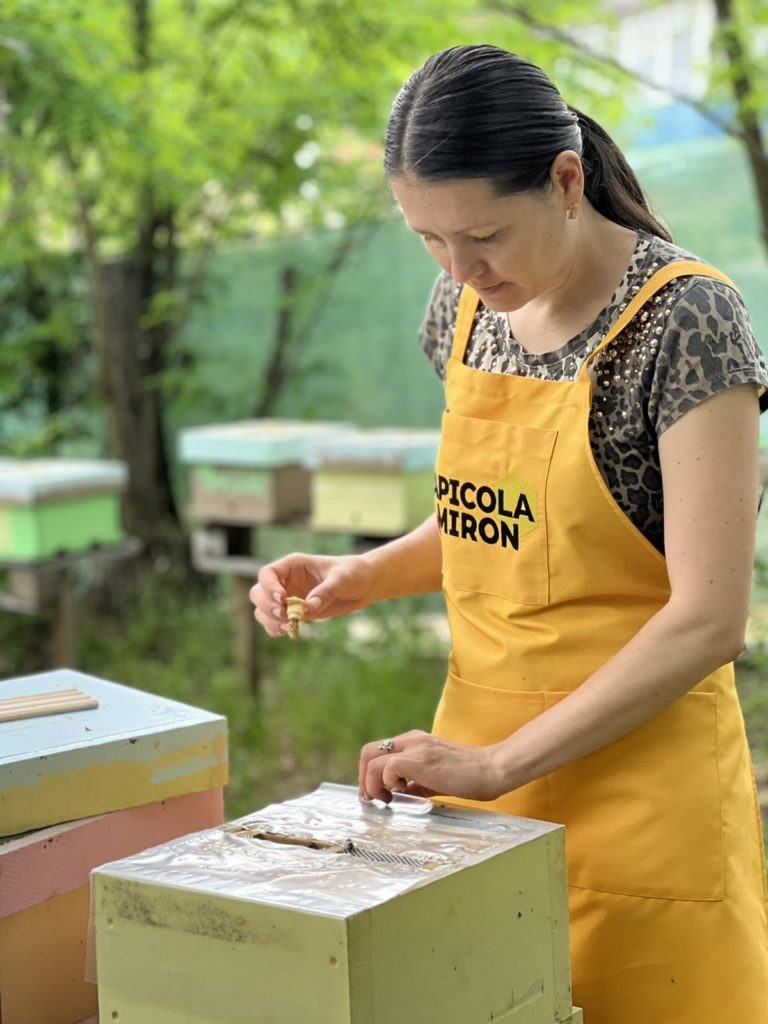
Natalia Miron 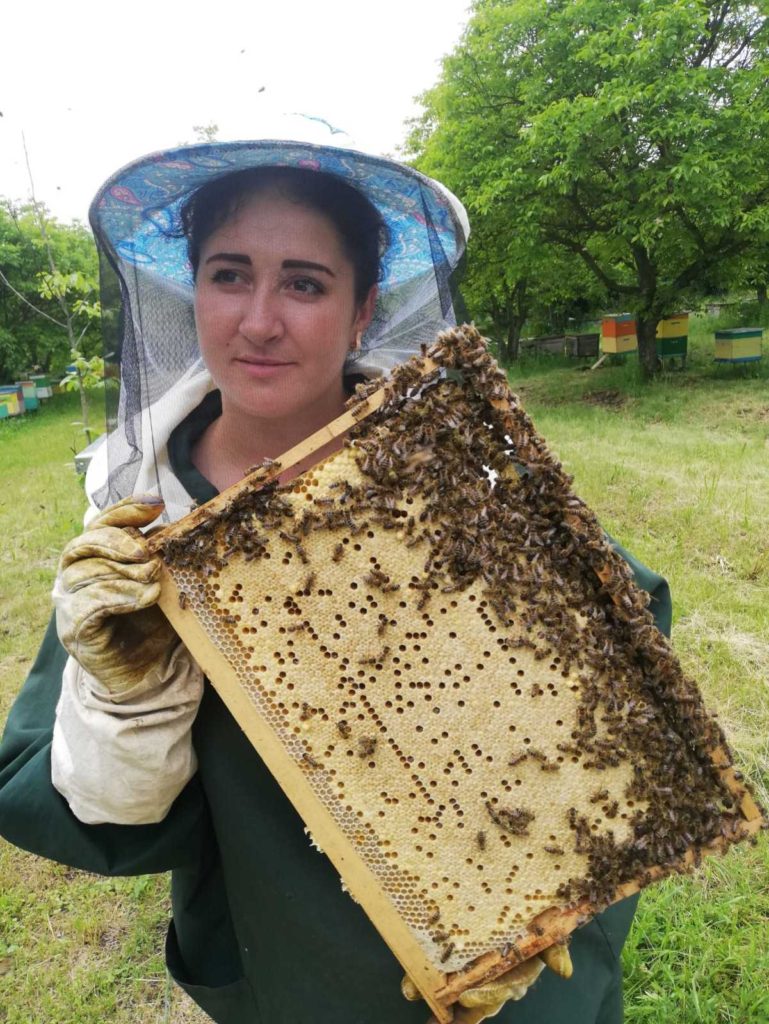
Cristina Radu
Natalia Miron owns together with her husband an apiary APICOLA MIRON with 150 families of bees, which they take care of side by side, together with their two sons. The profession of beekeeper has been passed down from generation to generation in her family. Natalia has recently started combining different bee products in gift sets, offering consumers yet another product option. She took part in a program offered for women in business and with its help started the production of ecological packaging. At the first stage, the packaging will be sold at organic product fairs, to production companies and beekeepers, but later they hope to develop partnerships so that the ecological packaging reaches as many people as possible. Both are now working with Apis through the Challenge Fund to explore and develop innovative ways of beekeeping in Moldova.
Seeds’ saving communities: the launch of Czech‐Moldovan seed libraries in Moldova
During the Soviet Union there was a centralized system of seed production which collapsed together with the USSR in 1991. Today there are few research institutes in Moldova which produce locally adapted seed varieties but the production of seeds of vegetables and greens is missing (97% of seeds for vegetables are imported). The demand for local reproducible seeds is growing in Moldova while the offer is still modest because the farmers’ seed system in Moldova is not developed. Although there are informal networks and exchanges, there is no organized system fulfilling the needs of local communities. A women-led Czech association Seminkovna together with their local partner Ao Gradina Moldovei aims to create a network of seed libraries which can be a starting point to address the issue of access to seeds at the local level. Just like with Seminkovna, leaders of this project in Moldova are women.
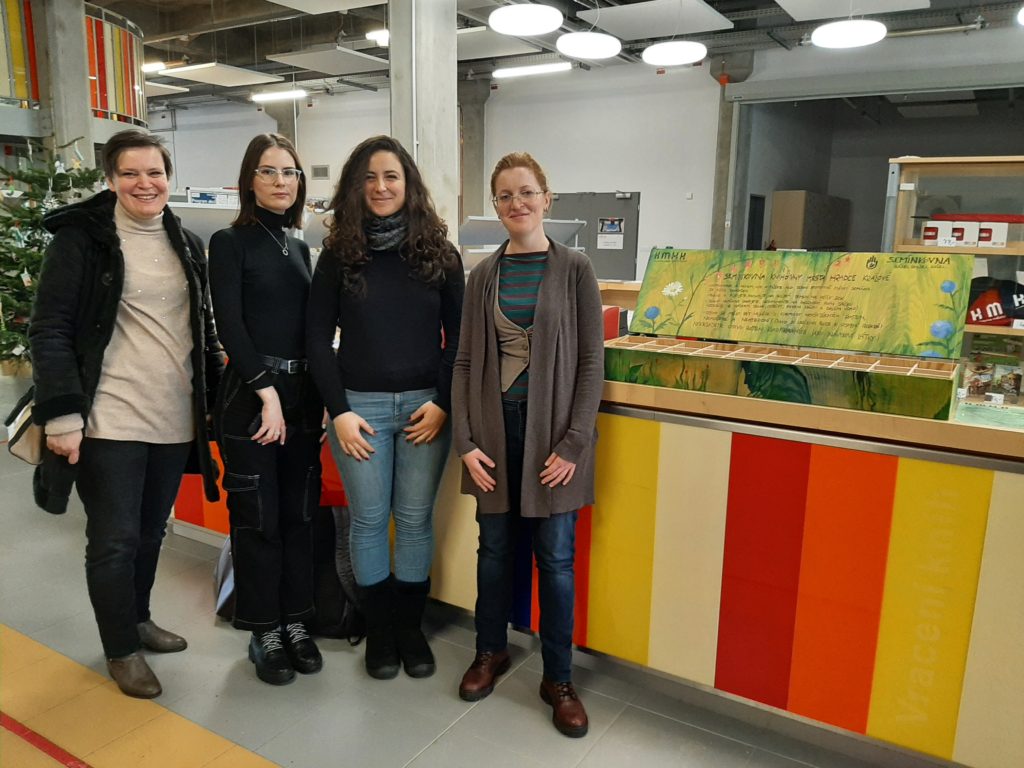
Anya Coutinho and Valeria Guznenco from Ao Gradina Moldovei on a work visit in the Czech Republic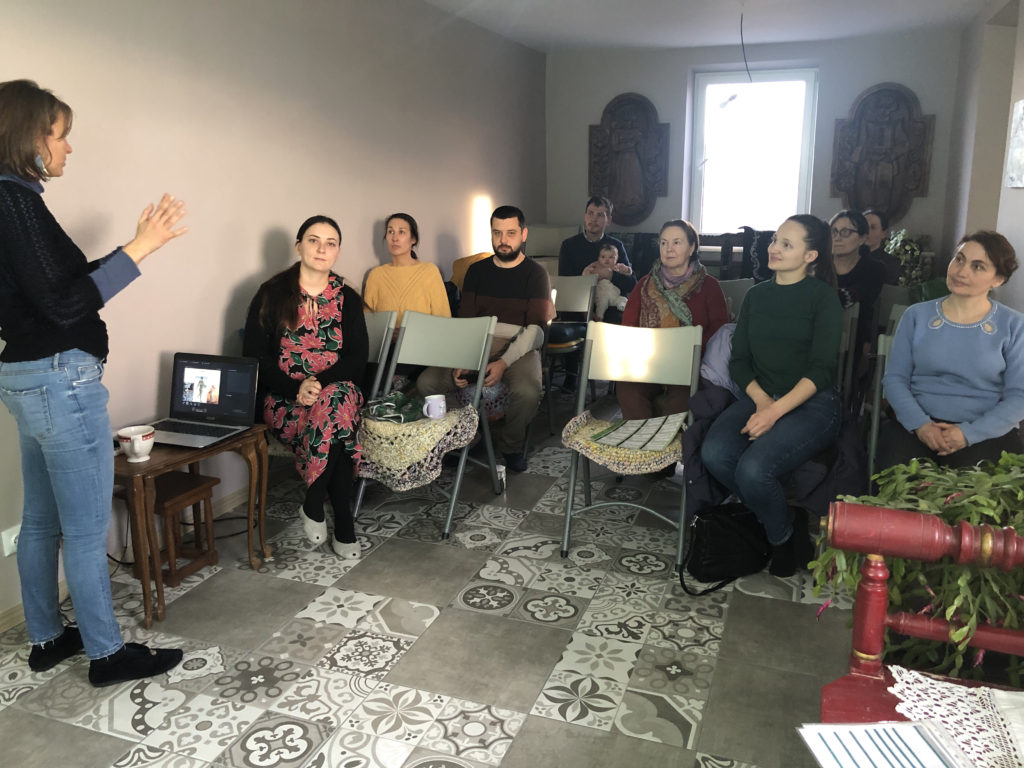
Seeds saving trainings conduced by Mariana Seremet
Anya Coutinho from Ao Gradina Moldovei is in charge of the project in Moldova. Together with Valeria Guznenco and Mariana Seremet they conduct seed saving trainings and the team had an opportunity to travel to the Czech Republic to meet Seminkovna’s innovators Klára Hrdá and Jana Čápová. Their field-trip had introduced them examples of operating seed libraries in multiple Czech cities. They will use their knowledge to start the seed libraries in Moldova and promote the idea of seeds saving communities in their homeland.
About the Czech-UNDP Partnership for SDGs
The partnership of the Czech Republic and UNDP supports innovative solutions from the private sector of the Czech Republic, non-governmental organizations, universities, state institutions, research centers and individuals for solving specific development challenges in priority countries (Bosnia and Herzegovina, Georgia, Moldova, Ethiopia, Cambodia, Zambia). The implementation of projects and expertise is financially supported by the Ministry of Foreign Affairs of the Czech Republic.

